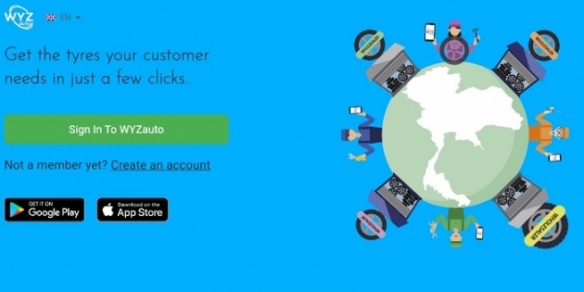Data drives the economy
By Jack van der Velde November 26, 2014
- The rise of data is perhaps the one trend that has the most profound effect on IT
- Tomorrow’s workforce will not accept the digital downgrade we accept today
 IN recent years, we have seen examples of one industry after another facing a disruption in the way consumers look for and buy products and services.
IN recent years, we have seen examples of one industry after another facing a disruption in the way consumers look for and buy products and services.
Let’s take a look at the underlying fundamental mechanisms that are changing and how they impact IT.
The word ‘data’ has transformed dramatically in recent years – from something held in a spreadsheet for historical reporting, to a source of valuable information that can be used to dynamically drive competitive value.
Everything we do online or on our mobile devices is generating data and analysed on a real-time basis: Facebook knows what type of food and music you like; and advertisers use cookies and intelligent algorithms to offer personalised, dedicated messages.
Amazon.com even claims to know what you want to buy next, based on your buying behaviour in the past.
There is a lively debate going on in the international business, politics and media industries: How far can governments and companies go to gather and analyse our data?
This debate will probably continue for many years. In day-to-day practice, most businesses have not even started to exploit the potential of the data they already own or that is available online in open source platforms.
Of all the trends, the rise of data is perhaps the one that has the most profound effect on IT:
- You will have to make sure that your (customer) data is up to date. Too often data is expired, flawed or incomplete, which prohibits any kind of meaningful data analysis.
- A single version of the truth across all systems is needed to get a complete picture of your audience. Customer data should not only be the same in all systems, but it also needs to be interchangeable.
- To reap the benefits of analytics, it is important to give people across the organisation access to (real-time) data. In the past, BI (business intelligence) was a tool only used in the boardroom, to look back at the past period. Today, big data analytics creates huge opportunities for knowledge creation.
- Corporate systems and processes need to be transformed so they can respond dynamically to trends in the data.
- Again it’s all about the customer. As companies and their workforces become more social, customer data should drive how companies operate, how the services team deals with customer queries, and how the product team makes product improvements. Socially aware business applications will become more important for the recruitment and retention of a younger generation too.
 Technology progress is driving disruption in the business and consumer world; it’s impossible to predict what will happen next year, let alone in 10 years from now.
Technology progress is driving disruption in the business and consumer world; it’s impossible to predict what will happen next year, let alone in 10 years from now.
Still, many IT investments are made within this time frame; both hardware and software are built to last.
The best preparation for any business or IT leader in this volatile environment is to make sure that all systems remain flexible at all times. No one can afford to be stuck with a system that is rigid and prevents the organisation from adapting to a new reality.
This has always been the case, but now it is more important than ever.
New generation ERP (enterprise resource planning) has recently begun the transformation to a system of engagement, one that connects people using social tools that encourage collaboration, a system that harnesses the power of the network to work smarter and create new solutions.
As the system of record in the enterprise, the potential of ERP for business is already enormous. Now in addition, it gets the power to adapt to the way people work, and eliminate the digital downgrade employees experience compared to consumers.
This adds tremendous value to the overall organisation and all customer-facing processes.
Those organisations that invest in innovation and build the latest technologies like social, mobile, analytics and cloud into their offerings will remain relevant.
Tomorrow’s workforce and business leaders will not accept the digital downgrade we accept today. As they move into the world of business, they will expect their experience with technology at work to mirror their experience at home.
We have to start thinking differently if we want to recruit and retain tomorrow’s talent.
Jack van der Velde is managing director of the Asia Pacific operations of Netherlands-headquartered business software company Unit4.
Related Stories:
Darwinism, survival of the fittest and the cloud
Seven facts about data-driven cultures in APAC
IDC's top 10 predictions for 2015: Innovation on 3rd Platform
For more technology news and the latest updates, follow @dnewsasia on Twitter or Like us on Facebook.


